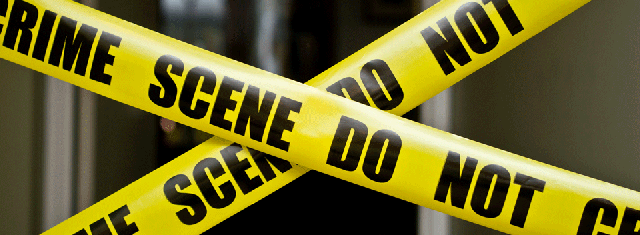Health
WA Police Tackles Meth Epidemic
State Member for Perth holds forum

Methamphetamine changes everyone (Source: Google)
USPA NEWS -
The emergence of meth in the community is putting enormous pressure on families, communities and our police and hospital emergency departments. Methamphetamine is unlike any drug we have seen before in WA.it is linked to the vast majority of crime and induces an unprecedented level of violence.
Last month Eleni Evangel MLA, Member for Perth, held one of a series of WA Meth Strategy Forums taking place across our State. The forum was attended by the Hon Andrea Mitchell MLA, Minister for Mental Health, and the Hon Liza Harvey MLA, Minister for Police, who spoke about the Government's work in tackling this insidious drug and its impact on the local community. The Liberal-National Government will do all that it can to eradicate it from our streets.
"We are fighting meth on three fronts", said Ms Evangel MLA ."Education to stop people from ever using this dangerous drug;
support and treatment services to help people who are impacted by meth; and crushing the supply of meth into Western Australia.
The Western Australian Meth Strategy.
The use of crystal methamphetamine (also known
as meth and Ice) is a significant problem for WA
law enforcement and health professionals as well
as families and individuals trying to cope with the
frightening impact of the drug.
The negative effects experienced by users, such as
psychosis and violence, have a knock-on effect in the
wider community where meth is increasingly being
linked to domestic violence, sexual assaults and
other crime.
The sharp shift in the proportion of meth users,
the increased harm to individuals, the increasing
cost to Government services and growing concern
from the community has reinforced the need for the
Government´s strong and coordinated response to
the scourge of meth.
The WA Meth Strategy outlines the State
Government´s two-pronged approach ““ targeting
the supply chain by strengthening law enforcement
measures to reduce production and distribution of
meth, and reducing demand for the drug through
targeted early intervention programs and individual
and community support
Disrupting Supply
WA Police have experienced a 40.8 per cent
increase in amphetamine-type stimulant arrests
between 2013-14 and 2014-15.
Research has indicated that meth users are 1.6
times more likely to commit robbery, 1.8 times more
likely to commit burglary, 2.1 times more likely to
arm themselves with weapons and 1.5 times more
likely to commit property offences than non-users.
Drug Use Monitoring Australia (DUMA) statistics
sourced in relation to the offenders lodged at the
Perth Watch House also indicate that the
percentage of offenders who had “˜recently used
meth´, has tripled from 15 per cent in 2009, to
53 per cent in the third quarter of 2015. This is
the highest percentage since the data was first
collected in 1999.
The amount of meth seized in WA has also
significantly increased from 122.7kg seized
in 2013-14 to 276.2kg seized in 2014-15.
From July 2015 to December 2015, WA Police
seized approximately 418kg of meth. This figure
includes a seizure of 321kg in September 2015.
In the 2014 calendar year, the Australian Federal
Police (AFP) seized 193 kg of meth destined for
the Western Australian market, with 45kg of these
seizures coming from postal and parcel deliveries,
15.2kg from international air courier (e.g. cargo,
baggage and internal-human), 16.5kg concealed in
freight and 115.7kg seized in other searches.
The Australian Crime Commission (ACC) has
determined that a high proportion of the meth seized
in Australia originated from overseas. It has become
much more profitable for illicit drug manufacturers to
purchase meth from countries such as Taiwan and
China, than to manufacture it in Australia.
In its 2013-14 Annual Report, the ACC established
that one kilogram of meth can be purchased in China
for $6,522, and sold in Australia for $590,000.
This has resulted in a decrease in the number of
clandestine drug laboratories producing meth in
Western Australia.
6
WA Police ““ Meth Enforcement
Action Plan
In July 2015 the Liberal National Government
announced the Meth Enforcement Action Plan.
The Plan has been developed by WA Police to
enhance their activities to target the supply of
meth in the community.
It includes the establishment of:
1.
Meth Transport Teams
The meth transport teams deploy to key transport
hubs to conduct searches of vehicles, trucks, trains
and aircraft entering WA, seizing meth and arresting
those responsible.
2.
Agency cooperation and collaboration
Greater cooperation and collaboration between
WA Police Organised Crime Division and federal
law enforcement partners, operating as the Joint
Organised Crime Task Force.
Partners include:
“¢
Australian Federal Police;
“¢
Australian Customs and Border Protection;
“¢
Australian Crime Commission; and
“¢ AUSTRAC.
Since April 2015, officers have been co-located
at the AFP Aviation Operations Building at Perth
Airport, are operating as the Joint Organised Crime
Taskforce. The Taskforce allows key agencies to
share intelligence on drug importations, combine
specialist capabilities and detect and disrupt meth
importation into WA and arrest those responsible.
3.
Dedicated Meth Teams
Dedicated Meth Teams have been established within
the Organised Crime Squad to target meth dealers in
metropolitan and regional Western Australia.
4.
Seize Cash Profits from Meth Sales
Dedicated teams involving collaboration with the
Australian Crime Commission have been established.
The teams investigate the transfer of money derived
from meth, nationally and internationally, seizing
funds and arresting those responsible.
The WA Police Proceeds of Crime Squad are also
focused on seizing money derived from local meth
based dealers.
5.
Meth Desk
A Meth Desk has been established within WA Police
which provides intelligence and investigative support
for Meth Teams.
6.
Clan Labs
In 2011 when clan labs were an escalating problem,
the Liberal National Government introduced new laws
for adults who manufacture, cultivate or prepare illicit
drugs that cause harm to a child, which meant they
faced a mandatory minimum jail term of 12 months.
In 2011, 177 clan labs were detected by WA Police,
with 35 children present at some sites.
WA Police deconstructed 84 clan labs in 2014.
During the financial year to date 35 clan labs
have been deconstructed by WA Police, 27 of
which were capable of producing meth.
WA Police intelligence indicates that clan labs
in WA are not currently driving the meth trade
and there is no evidence that they are capable of
producing significant quantities.
However, the Organised Crime Squad (OCS) will
maintain resources to locate and dismantle clan labs
which also pose a broad risk to the community.
7.
Road Side Drug Testing
Studies have shown that drugs that are capable of
impairing driver skills have been found in significant
numbers of drivers who have been injured or killed
on our roads. Statistics indicate that meth and other
drugs are a factor in up to 20 per cent of serious and
fatal crashes.
WA Police have increased road side drug testing
since 2012 from approximately 9,000 tests to
almost 30,000 tests in the 2015-16 financial year.
In 2015-16 $5.6 million was allocated to WA Police
from the Road Trauma Trust Account for additional
breath and drug testing and more than $5 million will
be allocated again in 2016-17.
This is a reflection of the commitment to catch
meth users who are risking their lives and those
of other road users by driving under the influence of
illicit drugs.
For more information download the PDF available through the Ministers Link.
Article written and supplied by http://www.wa.liberal.org.au/state/elenievangel
more information: https://www.wa.liberal.org.au/state/elenievangel
Liability for this article lies with the author, who also holds the copyright. Editorial content from USPA may be quoted on other websites as long as the quote comprises no more than 5% of the entire text, is marked as such and the source is named (via hyperlink).









